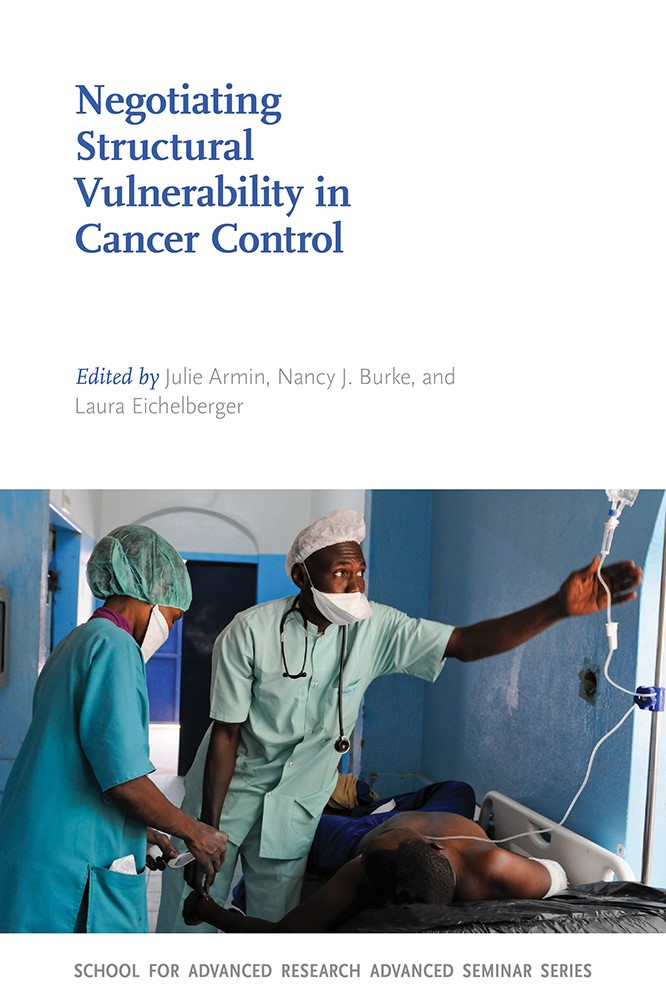
About the Book:
What can case studies about the lived experiences of cancer contribute to an interest in the concept of structural vulnerability? And can a consideration of structural vulnerability enhance applied anthropological work in cancer prevention and control? To answer these questions the contributors in this volume explore what it means to be structurally vulnerable; how structural vulnerabilities intersect with cancer risk, diagnosis, care seeking, caregiving, clinical-trial participation, and survivorship; and how differing local, national, and global political contexts and histories inform vulnerability. These case studies illustrate how quotidian experiences of structural vulnerability influence and are altered by a cancer diagnosis at various points in the continuum of care. The case studies examine cancer as a set of diseases and biosocial phenomena. The contributors utilize insights gained from studies on cancer to extend structural vulnerability beyond its original conceptualization to encompass spatiality, temporality, and biosocial shifts in both individual and institutional arrangements.
About the Author:
Julie Armin is an assistant professor in the Department of Family and Community Medicine at the University of Arizona. Alongside her clinical colleagues, she conducts research that aims to improve equity in cancer care.
Nancy J. Burke is a professor of public health at the University of California, Merced, where she also serves as the chair of public health. She is a full member of the UCSF Helen Diller Comprehensive Cancer Center.
Laura Eichelberger is the senior epidemiology and health research consultant at the National Tribal Water Center of the Alaska Native Tribal Health Consortium and a former Cancer Prevention Fellow at the National Cancer Institute.



